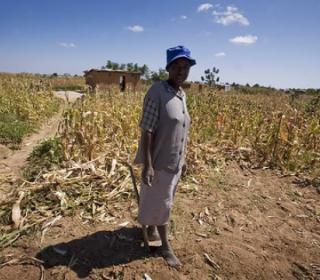U.S. Announces Land Governance Partnership with Burkina Faso
On June 14, the United States announced a Partnership with Burkina Faso, in coordination with the G8, to improve land governance and strengthen transparency. The Partnership will build on progress achieved under the Millennium Challenge Corporation (MCC) Compact and the New Alliance for Food Security and Nutrition Country Cooperation Framework with Burkina Faso, which support a number of the principles of the Voluntary Guidelines for the Responsible Governance of the Tenure of Land, Fisheries and Forests in the Context of National Food Security.


